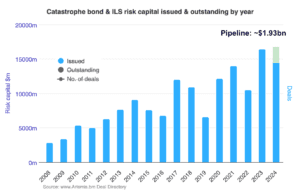New year resolution: Allianz to curtail oil, gas underwriting January 1

Allianz will no longer issue new single-site and stand-alone property and casualty insurance from January 1, or fund new oil and gas field projects or the construction of new infrastructure related to those power plants.
It will also drop coverage for practices relating to the Arctic and Antarctic, coal-bed methane, extra-heavy oil and oil sands, and ultra-deep sea.
The new investment and underwriting commitments for oil and gas as part of its broader net-zero strategy. From 2025, Allianz says it will only insure and invest in oil and gas companies which have committed to achieving net-zero greenhouse gas emissions by 2050.
“We are committed to continuing this momentum and working with the wider finance and insurance industries – both in Australia and overseas – to drive positive change,” Allianz Australia MD Richard Feledy said.
Allianz has been limiting insurance and investments in thermal coal-based business models since 2015 and aims to completely withdraw from the thermal coal sector by 2040.
To limit global warming to 1.5°C, the global economy needs to move away from fossil fuels more quickly, and so Allianz has decided to adjust its investment and underwriting strategy for the global oil and gas industry, the insurer said.
Allianz says climate change is expected to amplify tail risks from an increase in the frequency of high-intensity tropical cyclones.
Regions such as Australia’s east coast which has an historically low risk will see a higher frequency of tropical cyclones, it says.
Experts at Allianz Reinsurance – including meteorologists, hydrologists, geophysicists, geographers and mathematicians – model around 50 natural catastrophe scenarios for Allianz Group. Data is captured to map a range of perils and regions, such as stress-tests for bushfire in Australia.
The top three perils contributing to natural catastrophe risk for Allianz Group in the past four years were windstorms in Europe, floods in Germany and earthquakes in Australia, it says in its latest Sustainability Report.
In December, Allianz Australia became the first insurer to join Climate League 2030, a ten-year, private sector-focused initiative to support and act towards a goal of reducing Australia’s annual greenhouse gas emissions.





